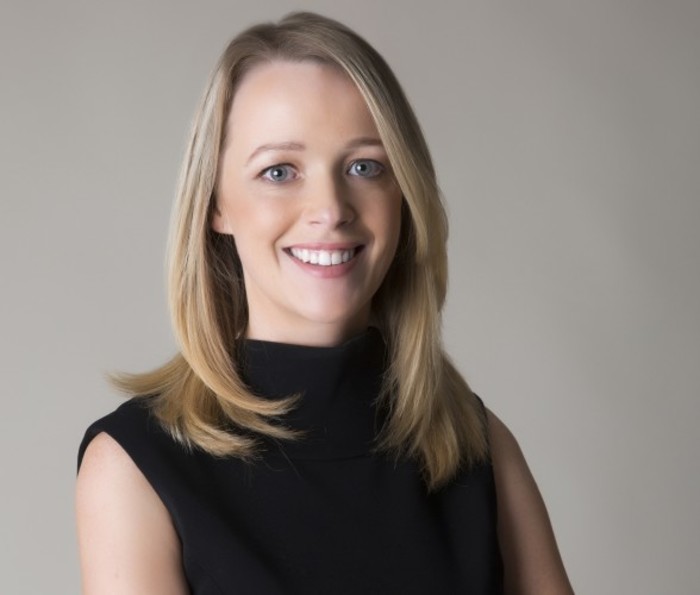'When you're trying to rent a clinic, the minute you say 'addiction', people say no'
As part of our How My Business Works series we profile Dublin addiction centre the One Step Clinic.
THE VISUAL CHANGE is the most obvious one that Mary O’Brien best notices among the addiction patients.
Many of the people who walk through the doors of the One Step Clinic clinic have hit a low point following a battle with alcohol or opiates like heroin, and are in need of help.
“Many of the people reach out for help when they are forced to do so. A relationship may be in danger or a job on the line,” One Step managing director O’Brien tells Fora.
“Because we are seeing them at their lowest ebb, when you see their progress it can be very visual.
“They will take more pride in their appearance, for example you may have a woman putting on makeup halfway through (her programme) because she has changed her outlook”.
Appearances can be important, for the One Step Clinic as well as its patients. While many attitudes have improved in recent years, O’Brien, 36, says that her business still has to face stigma that comes from dealing with addicts.
“When you are trying to get a clinic to rent, the minute you say the word ‘addiction’, they say no,” she says.
“There is a misconception around the people who will come in and what they will do. We see people from every walk of life, from barristers to unemployed people. There is no shame in looking to get treatment, it’s good to be able to reach out.”
O’Brien, from Kenmare in Kerry, had no experience of working in addiction therapy before launching the One Step Clinic in 2014, and admits to being “naive”.
Naltrexone
Her background is one in the business side of pharmacy. She arranged the deployment of locum staff in pharmacies part-owned by the UniPhar group upon leaving college before leaving to move into consultancy in 2006.
“I had a friend who was a doctor in London who had bought into an outpatient addiction service,” she says. “He rang me when he was looking to source a product for his clinic to use, naltrexone implants”.
Naltrexone is a drug that blocks the effects of opiates like heroin. As part of the pleasurable effect from alcohol happens through opiate receptors, it can also be effective in treating drinking problems.

When using naltrexone, people get less cravings and less pleasure if they do use substances.
“An implant was developed. While there are (Naltrexone) tablets that work, dealing with people addicted to alcohol and heroin, there are compliance issues,” O’Brien says. (The implant) works well when people don’t trust themselves to take a tablet”.
“We had a company in the UK that developed a formulation for a slow release implant. The product was being sold throughout the UK and some international clinics were buying from us.
“Because no-one else in Ireland was offering anything similar, I decided to find a partner to open a clinic with in Dublin.”
O’Brien partnered with Dr Hugh Gallagher, and together the pair opened the first One Step Clinic in DCU in 2014. They found that the facility couldn’t keep up with demand, and moved the clinic to Ongar village in west Dublin.
Affordability
The firm opened up in another new location, Glasthule in South Dublin, towards the end of last year and hopes to continue expanding. The two locations have about six staff each.
One Step’s clinics provide a range of different services. Its main focus is outpatient treatment to tackle opiate and alcohol abuse, although it treats a range of different addictions including gambling and pornography.
O’Brien says that One Step has a fairly loose 12-week structure that can be tailored for patients depending on what they need, which the clinic works out after an initial in-depth assessment.

The outpatient programmes tend to run for between 12 and 15 hour-long sessions depending on the person, and tend to cost between €1,600 and €2,000 after the initial consultation, which costs €200.
O’Brien acknowledges that affordability “is a big issue”. While she refers to the naltrexone implant as the clinic’s ‘unique selling point’, she also recognises its cost.
“The majority of pharmacies charge €70 to €80 for a 30 day supply of naltrexone,” she says. “It (the implant) costs €1,150 and lasts for three months,”.
Asked how many implants people tend to need to kick their addictions she says: “It depends.
“People who have come to us for alcohol may only need one as it helps with the cravings and then after they get through that they may take the tablets.
“Heroin would often require people to have three or four implants to prevent a relapse. We get a lot of enquiries about the implants but only people who really need it will get one. It is down to the clinic to see if the patient will benefit from it.”
Mix of patients
O’Brien says the implant isn’t covered under either the medical card or by private health insurance. While she says the firm has been in contact with state bodies about making the implant reimbursable through the medical card, she adds that talks are very much at a preliminary stage.
Due to the fact that many people cannot afford to pay for the treatment, O’Brien says that the company works with services, like charities, that people with addictions will be able to access.
 One Step clinic managing director Mary O'Brien
One Step clinic managing director Mary O'Brien
“A charity may not have a clinician so they may refer a patient to us, or a client may not be able to afford us so we would refer to them (the charity),” she says. “It depends, we get people at all ends on the affordability scale and we would try to help them all.
“We wouldn’t see them as competition. We can’t provide a residential service but people may come to us for aftercare.”
O’Brien says that the firm tends to get a “decent mix” of patients, with some from low income backgrounds. She says: “Because we are private, it tends to be middle and high income families but we do have a mix of people.”
She admits that working with addicts can be tough, saying: “Because you are working with people who have varying degrees of motivation, people will book in when they are motivated but then they may continue with their drink or drug use.
“It isn’t the easiest business to run, but it is easy to see the changes so it is very rewarding.”
Expanding
The firm made a small loss in its first full year of operations in 2015, although O’Brien says that the clinics are now profitable. She says that the firm is planning to expand, and could do so either by opening more clinics by itself or by franchising out its name and business model.
This is something that the company has already tested, with its name being used to open the Suasth One Step clinic in Mumbai, India.
“The clinic opened last August and has been doing very good. They like western brands in the Indian market,” O’Brien says. “I don’t think that we would look to work with anyone else (in India), the people we are working with have plans for a nationwide rollout.”
Going nationwide is also something that O’Brien hopes to do closer to home. The businesswoman says that the next clinic that the firm opens will likely be outside Dublin, and said she is eying all regional cities.
“Cork is the most likely. We get a lot of people from that area because there are not a lot of services,” she says. ”It is about having central access for people.”
Asked what her ultimate goal for the company is, O’Brien says she has one eye on selling out at some point, but that it is unlikely to be in the near future.
“I would like to sell at some point but there is a lot of work to be done before we get there to establish the brand and make it attractive for someone,” she says. “We would like to establish ourselves as a go-to provider of addiction services.”






